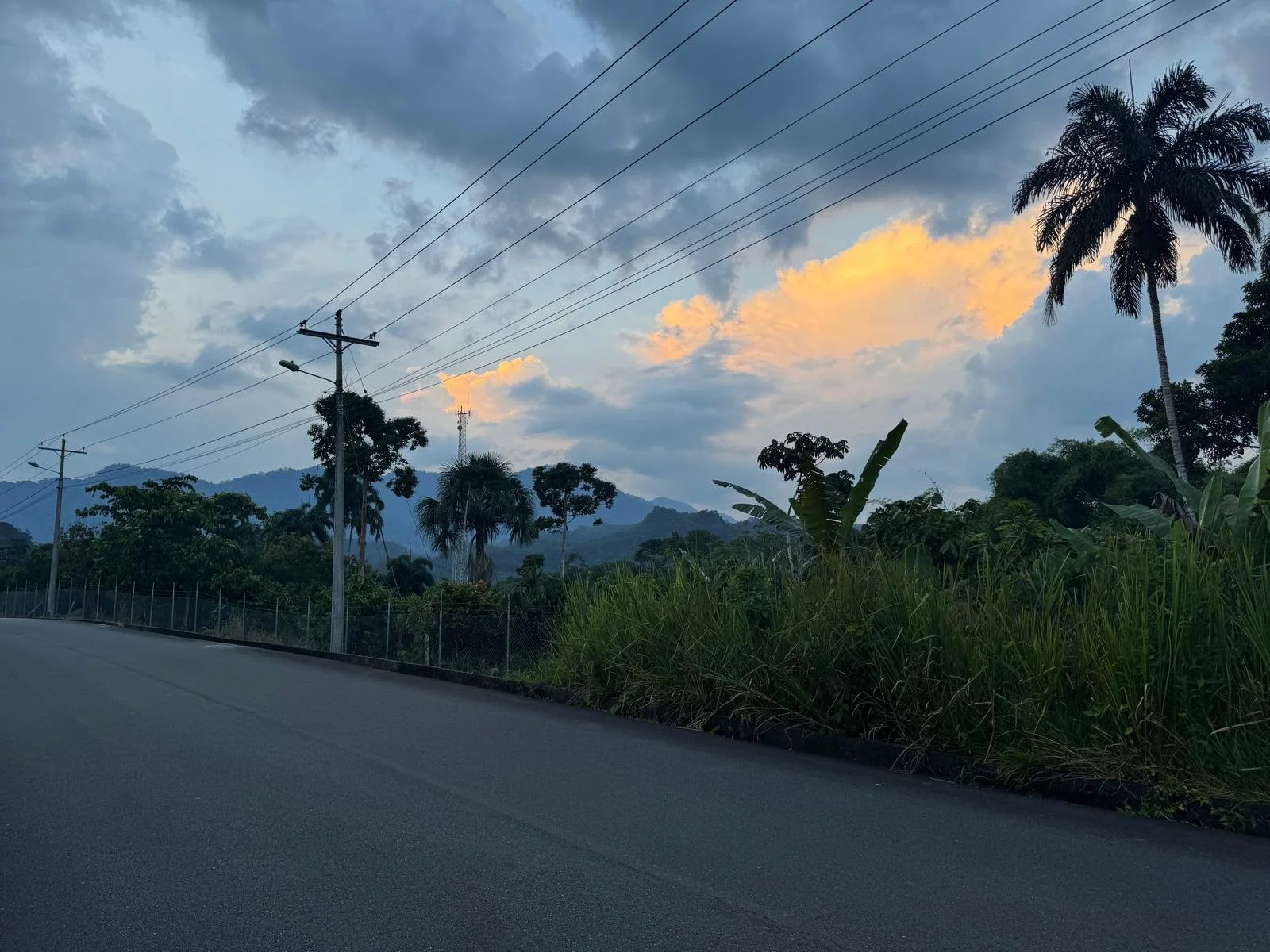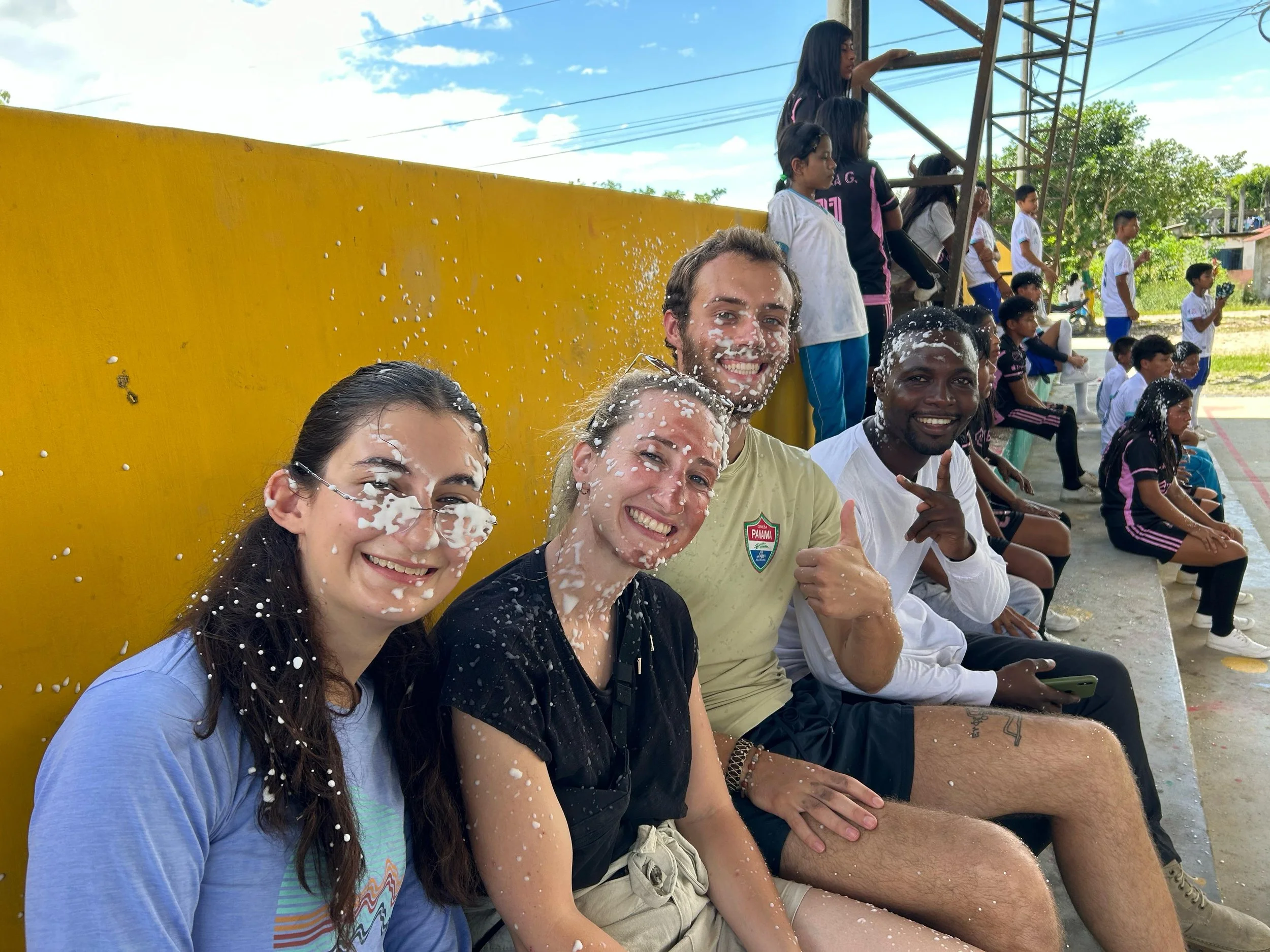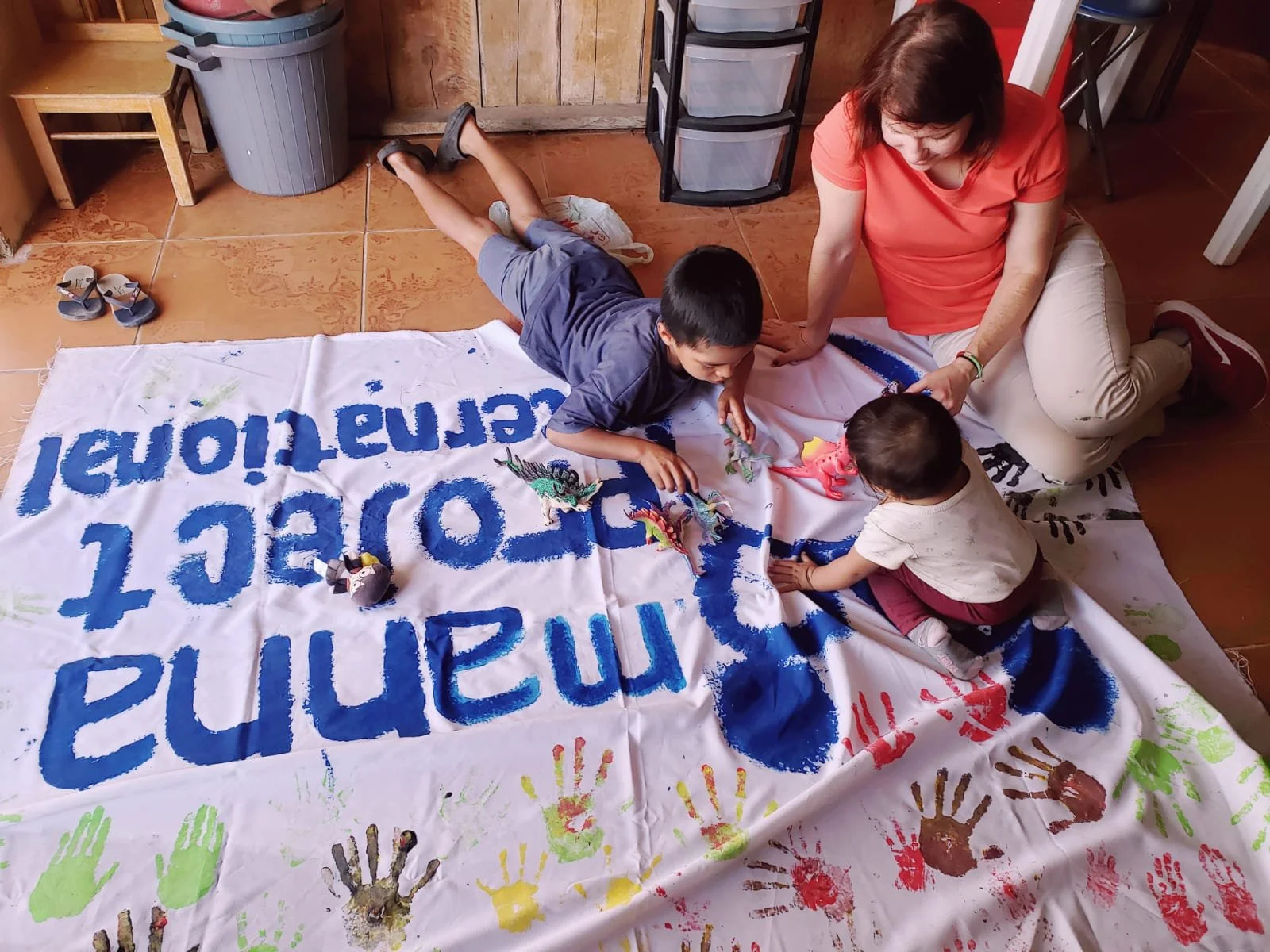Today was a pretty monumental day in the library: it was Dana's last day teaching children's English, a class she started for MPI-Ecuador last January. Dana wanted to make her last class focused on learning about American culture, history, and personal insights about us as volunteers. The kids were allowed to write anything and everything they wanted to know on small sheets of paper and then we would read (anonymously) and answer them as best we could. Dana, Bibi, Shawn, Sonia, and I sat around the table with the kids and had a wonderful exchange of customs and culture.
Dana and I watch as the kids brainstorm their questions
Dana leads the lively discussion
Shawn, Dana, and I pose with our class
I also decided to interview Miss Conway after dinner (while she sipped one of her nightly dozen cups of tea) to inquire about the origins of English, what she's taken away from it, and more...
Me: When and how did you start teaching children's English?
Dana: Starting a children's English class came about last January because of demand from the community. Even though I had never taught before and wasn't very comfortable around children in such an intimate setting, I felt like I had the time to take it on while others didn't and I really wanted to do it for Manna. I tried to persuade another PD to do it with me but no one was really available, so I took it on myself. The first month was extremely nerve-wracking as I had never done anything like it before, but with every class I felt more comfortable and it got easier. The most comforting thing for me was realizing how non-judgmental the kids are. I have easily learned as much from them and they have learned from me.
Me: How do you think children's English has changed since last year?
Dana: When we first started we didn't have our own space. Now that we have classes out of a Manna-specific space we're able to draw more people and have built a consistent group of attendees. This consistence in attendance has transformed the class into an actually course rather than scattered lessons, which results in better retention from students. Within the last few weeks we have also split the class into two because of the wide variety of ages and levels. This allows us to cater to children's specific needs and move at a faster pace.
Me: What's your favorite part about teaching?
Dana: I love the feeling of accomplishment at the end of courses when students show how much more than know than when they came in. I also love when the kids become curious and are eager to question things outside of just what I'm teaching them and I'm able to draw upon their interests to explore other topics.
Me: Do you have any advice for future children's English teachers that will be taking over your position (ie: me)?
Dana: When you get frustrated by the difficulty in lesson planning or the chaos that is inevitable by the way we teach since we cater to such a large range of ages and levels, just remember that getting them excited about learning English is just as important as what they actually learn. Whenever you find yourself struggling realize that these kids love this class and you're the reason why.
A special thanks to Dana for being such a great children's English/agriculture/daily life mentor and apartment-mate! I definitely have huge shoes to fill as I take over her class next week.
- Jackie













